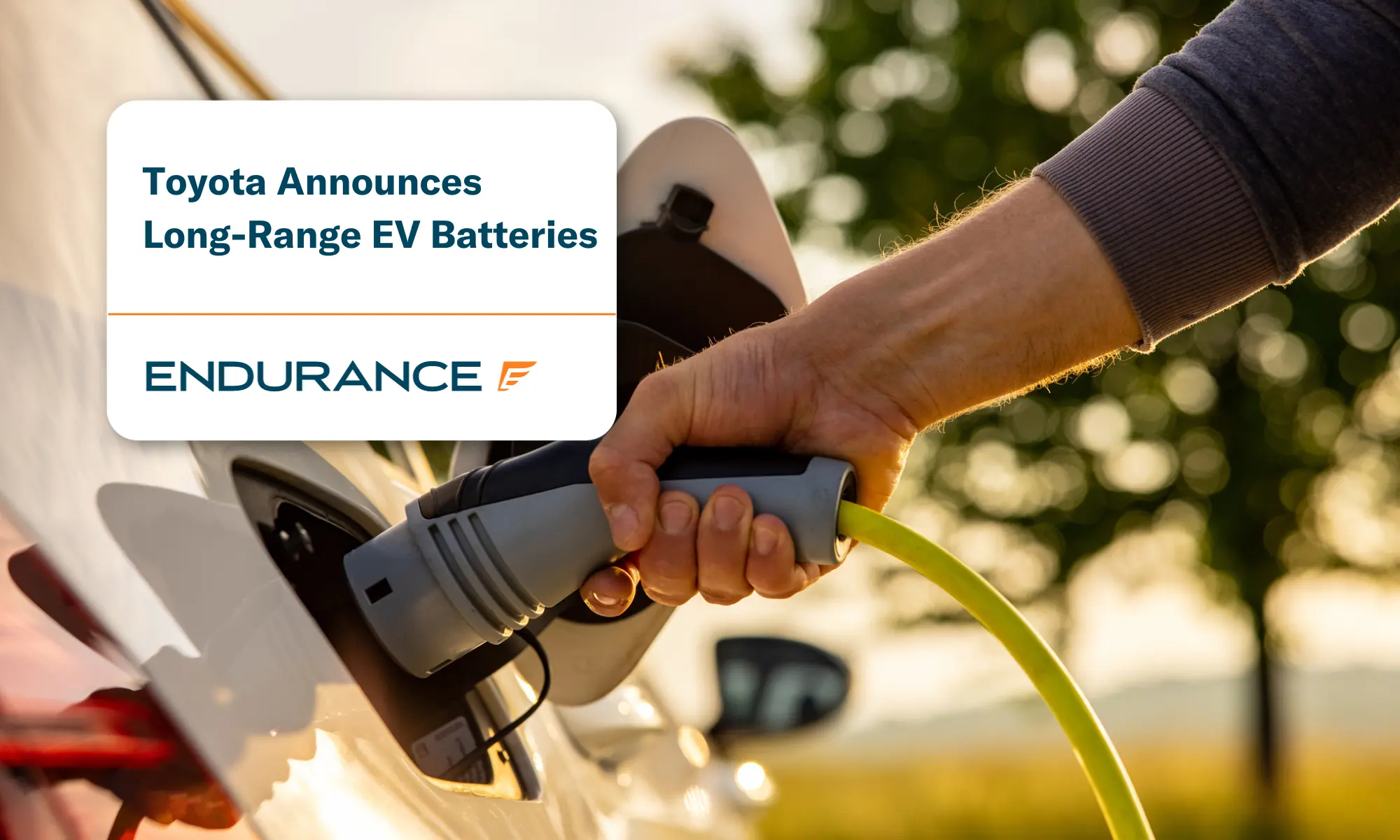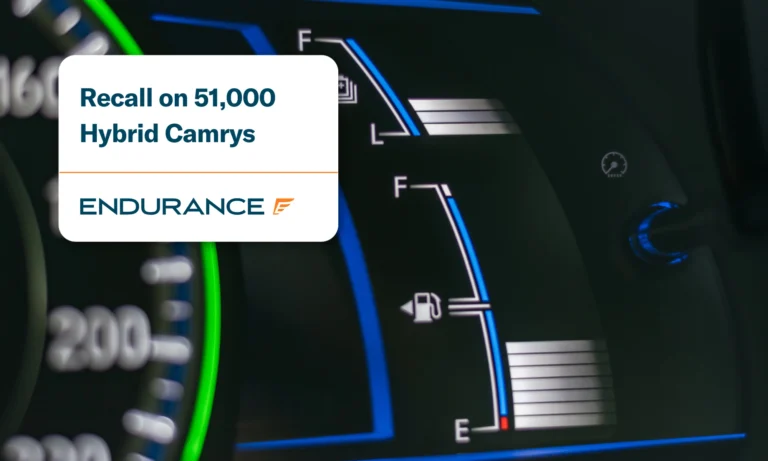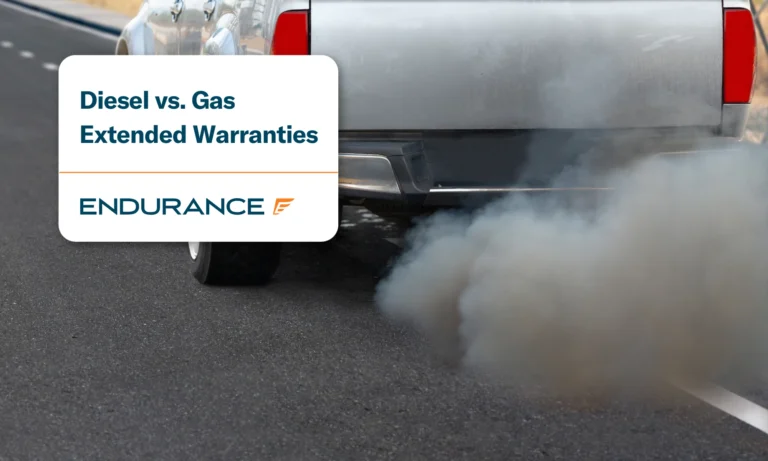Toyota Announces Long-Range EV Batteries, With Limited Production

While Toyota’s slower approach to electric vehicle development is the subject of criticism by industry players and frustration for customers, the world’s largest automaker could eventually leap ahead of the competition with an EV technological breakthrough.
Last June, Toyota unveiled its road map for the company’s electrified future. Among the plans was an announcement for solid-state EV batteries that could transform the automaker’s all-electric offerings. These new cells could reach cars as early as 2026, promising greater range and quicker charging times. Yet, every advancement usually comes with a setback. In this case, the production of these next-generation EV batteries will be limited at the outset.
Let’s examine what the introduction of Toyota’s breakthrough could mean for the auto industry and consumers, especially if the full benefits of this technology are years away.
Unveiling Toyota’s Long-Range EV Batteries
Solid-state batteries are not new or unique to Toyota; other automakers are eager to introduce this technology. Archrival Nissan has similar goals of launching electric cars powered by all-solid-state batteries (ASSBs) by the decade’s end.
Technological Breakthroughs and Features
Unlike conventional lithium-ion batteries that are popular in many of today’s EVs, solid-state batteries use a solid electrolyte. An electrolyte is a substance that enables charged particles (ions) to move freely to conduct electricity. The EVs or BEVs (battery electric vehicles) currently on sale use a liquid or gel-based electrolyte.
There are several advantages to using a solid electrolyte. Chiefly, ASSBs have a higher energy density, allowing for a longer EV range. Toyota forecasts that solid-state batteries will enable its future EVs to travel up to 1,000 kilometers (about 620 miles) on a single charge. Remember that this rating is based on the more optimistic CLTC range standard (explained later). The company’s only EV sold in the U.S., the bZ4X, has a range of up to 252 miles (an estimate determined by the U.S. Environmental Protection Agency).
Introducing ASSBs will also improve charging times. Using a Level 3 (DC fast charging) system, it takes about 30 minutes to bring a Toyota bZ4X’s battery from 10% to 80%. According to the company’s projections, the same effort would take less than 20 minutes with solid-state batteries.
Toyota also calls attention to the other benefits of ASSBs, like lower production costs, which, in theory, should make for cheaper EVs. Solid-state batteries also weigh less than conventional units, helping improve vehicle efficiency. Further, there’s less fire risk, a problem associated with lithium-ion technology.
If the automaker’s objectives become a reality, consumers can expect ASSBs to appear in Toyota hybrids as early as 2025. ASSBs would then be deployed to all-electric vehicles a year later on a limited basis.
Comparison with Current EV Battery Technologies
Understanding what today’s electric vehicles use for power sources underscores how transformative the potential of ASSBs is. Here’s a look at the most common EV battery technologies.
- Lithium-Ion (Li-ion): For the time being, lithium-ion technology is the gold standard for EV batteries and is the most widely used. Li-ion offers high energy density for longer ranges. However, these batteries can be expensive and pose fire safety concerns due to the liquid electrolytes. In addition, access to raw materials can be challenging, and low temperatures can zap battery strength. Popular chemistries include NMC (nickel, manganese, cobalt) and NCA (nickel, cobalt, aluminum).
- Lithium Iron Phosphate (LFP): More and more automakers are working around Li-ion challenges by switching to LFP batteries. There’s no need to deal with nickel or cobalt, which are expensive and hard to get. LFP technology offers lower production costs and fewer safety concerns. However, there’s less energy density with an LFP-based system, so range suffers, and charging takes longer.
- Nickel Metal Hydride (NiMH): A well-understood but increasingly outdated technology still used in some hybrid electric vehicles. NiMH cells are reliable and durable but provide significantly lower performance and density than today’s lithium-ion batteries.
Understanding Battery Range
While discussing current battery technology, we should also discuss what most EV buyers and owners are concerned with: range. Different capacities get spoken about, but it’s vital to understand that ratings can vary by country or region. Here’s what to know about the three most common range rating standards used globally.
- EPA: This standard is used by the Environmental Protection Agency (EPA) to estimate the mileage range of electric vehicles sold in the U.S. This rating is considered the most conservative among all the major standards.
- CLTC: This CLTC (China Light-Duty Vehicle Test Cycle) is used by Chinese regulators to establish EV range estimates in that country. This method is often considered to be overly optimistic. When assessing the same vehicle, the CLTC range estimate will always be higher than the EPA standard.
- WLTP: EVs sold in Europe and other regions rely on the WLTP standard for range estimates. The results are more conservative than what the CLTC standard offers but are still more generous than what’s established through the American method. WLTP replaced the New European Driving Cycle (NEDC) standard.
The key point is that official lab test ratings using these standards will likely be much higher than the actual range electric vehicle owners experience on the road in normal driving. Environmental factors like speed, temperature, terrain, and accessory use impact range significantly. The standards attempt to account for those factors with varying degrees of optimism. No test procedure can match individual driving needs and habits.
Implications of Limited Production on the EV Market
Although Toyota plans to deploy solid-state batteries in some hybrids by 2025, initial production will be limited. During the next few years, costs will likely limit adoption to premium vehicle models rather than mass-market EVs. You can see the company touting a high-end Lexus with exceptional range as a critical feature. Plus, we live in an era of $60,000 Toyotas, so seeing a similar approach with a top-tier offering from this brand isn’t out of the question, either.
By 2030, however, Toyota intends to unveil a mainstream EV model with solid-state batteries and sharply scale up production. This can transform the affordable EV segment entirely through the sheer size of Toyota’s production capacity and market reach. An EV priced like a Corolla but with the extended range and quick charging time of a high-end Tesla could eliminate consumer reluctance about giving up on conventional automobiles.
Time should also help reduce the costs of producing solid-state batteries, which is necessary to make EVs more affordable. Toyota expects costs to become comparable to lithium-ion batteries over time, too. Market analysts predict that given Toyota’s vast volume supply capability, mass adoption of its batteries could drive costs down industry-wide.
Challenges and Opportunities for Toyota
The primary challenge for Toyota is boosting production capacity while maintaining performance and safety standards. This includes setting up supply chains to obtain sufficient volumes of necessary rare materials. Training personnel for an entirely novel battery production system presents difficulties, too.
At the same time, Toyota has an opportunity to assert technological leadership in the automotive market. Just as Tesla got credit for bringing EVs to the forefront (the company still has a 60% share of the EV market), Toyota has a chance to relaunch an EV industry based on more consumer-friendly factors (lower prices and better capabilities). By the time rivals catch up, Toyota will already be well-established.
Toyota’s Strategy in the Evolving EV Landscape
The EV market features intense competition between car makers undertaking rival technological initiatives, from long-range silicon anode cells to low-cost sodium-ion batteries.
Amidst this turbulence, Toyota’s ambition stands out due to critical strategies. Firstly, they have backed a “winning” battery technology that overcomes the limitations of current commercial lithium-ion batteries and other emerging systems. The promised cost savings at volume production and enhanced safety align consumer and regulatory interests.
Additionally, Toyota is uniquely positioned to leverage the vertical integration of its supply chain, experience accumulated over decades of expertise in high-quality yet efficient manufacturing. Just as important is its scale. As the world’s largest automaker, Toyota can kickstart an entire supply ecosystem like no other.
The Future of Electric Vehicles and Sustainable Transportation
Toyota’s bet on next-gen solid-state batteries follows its long-standing measured approach favoring robust technologies over fast-changing trends. The potential impact on EV adoption rates is significant. Today’s bottlenecks around driving range, charging times, and battery costs may vanish by the decade’s end once mass production starts.
Meanwhile, ASSBs meet the needs of regulatory agencies and environmental groups seeking to promote greater adoption of EVs. The more acceptable EVs are to consumers, the sooner these organizations’ goals can be reached.
If successful, Toyota’s solid-state batteries promise to usher in an era of convenient and affordable EVs. Combined with renewable energy adoption, the world can steer towards sustainable transportation.
Protecting Your EV Investment: Endurance Coverage for Hybrids and Teslas
While exciting breakthroughs occur in vehicle tech, buying a hybrid or EV remains a major investment decision for most consumers. This is where an auto protection plan (also called an extended warranty or vehicle service contract) can safeguard car owners against expensive repair bills.
For instance, Endurance offers plans that protect hybrid vehicles like the Toyota Prius. There are options to cover primary powertrain components like the engine, transmission, and drive axle. Expanded programs can protect the air conditioning, electrical system, and complex electronics such as the infotainment system. Coverage excludes the hybrid traction battery. In addition, Endurance offers coverage to Tesla owners. It’s a comprehensive program that covers qualified high-voltage batteries (the traction battery) and other key components
Extended Car Warranty = Peace of Mind
Protection against breakdowns and surprise repair bills is why so many car owners turn to Endurance for an extended warranty (more accurately known as a vehicle service contract). Other benefits add to peace of mind, including 24/7 roadside assistance (with towing coverage and lockout assistance), rental car reimbursement, and trip interruption support. Customers can also select any ASE Certified mechanic or shop for covered repair work.
Endurance customers receive a 30-day free-look period. If you’re dissatisfied with the coverage or the customer service we offer, the plan can be canceled for a prompt refund. After that period, we also allow for cancellation at any time with a prorated refund (see plan terms for full details).
No matter what you drive, discover all your coverage options for Endurance coverage. Call (800) 253-8203 to talk with a plan advisor, request a FREE quote, or visit our online store.
Explore the Endurance blog for articles on must-know topics like car repairs, maintenance tips, warranty advice, and more.
Toyota EV FAQs
Does Toyota have a 900-mile battery?
Not yet. Toyota’s projections call for solid-state batteries to deliver a vehicle range that doubles the 252-mile range (based on the EPA standard) of the Toyota bZ4X by later this decade. Further development may increase this capacity by another 10%-20%.
What company is working with Toyota on solid-state batteries?
Toyota is working with Idemitsu Kosan, a leading Japanese energy company, to develop solid-state batteries for BEVs.
What does that mean for Toyota’s current models?
For the immediate future, Toyota will continue to use existing battery chemistry (such as lithium-ion) in its electrified cars, including the Prius hybrid. As ASSBs are perfected, we can expect solid-state batteries to first appear in hybrids, followed by use in all-electric vehicles.
What is the cost of a new Toyota EV?
As of this writing, Toyota only sells one EV in America, the bZ4X. It has a starting price of $42,000.













After more than 16 years as a technician and service advisor, Adam Karner transitioned to the auto protection industry in 2009. As a Product Manager for Endurance Dealer Services, he brings valuable hands-on experience. Read more about Adam.